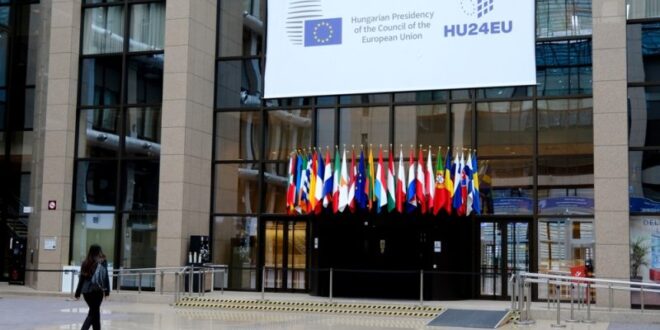Northern and Eastern European countries will not send any ministers to Hungary during the country’s EU presidency in protest against Prime Minister Viktor Orbán’s solo trip to Moscow.
Orbán has been widely criticised by EU member states and institution leaders for his recent ‘peace missions’ to Moscow, Beijing and Florida, and his case was on the agenda at the Conference of Presidents on Thursday (11 July).
The feeling in Brussels and the EU capitals is that the Hungarian leaders is increasingly hijacking the EU’s rotating presidency and using it for his own gain, not representing the EU.
Euractiv has learnt that several EU countries—including Sweden, Finland, Estonia, Latvia, Lithuania, and Poland—will only send officials to the informal ministerial meetings that will be organised in Budapest throughout July.
Discussions in other countries are ongoing.
“The Hungarian behaviour during the presidency is damaging and must have consequences. Sweden will, therefore, not participate at the political level during the informal ministerial meetings in July”, Swedish EU minister and Commissioner-hopeful Jessica Roswall told the Swedish press agency TT.
Meanwhile, within liberal Renew Europe group, there were calls to strip Hungary of its presidency altogether.
“Honestly, the possibility of boycotting the Hungarian presidency was discussed from his (Orbán’s) first trip, the one to Kyiv,” an official from the liberal group told Euractiv.
Various measures could be considered, including the possibility of prematurely ending the Hungarian presidency, appealing to previous Belgian or Spanish presidencies, or even speeding up the Polish presidency, they said.
However, EU member states this week did not discuss options on how to deal with the issue or, as some had previously called for, to ‘rein in’ Hungary’s actions and there is no appetite to shorten the presidency, EU diplomats told Euractiv earlier this week.
Hungary will chair both formal and informal ministerial meetings in Brussels and Budapest, except the foreign ministers’ gatherings, from 1 July until the end of the year.
 Eurasia Press & News
Eurasia Press & News


